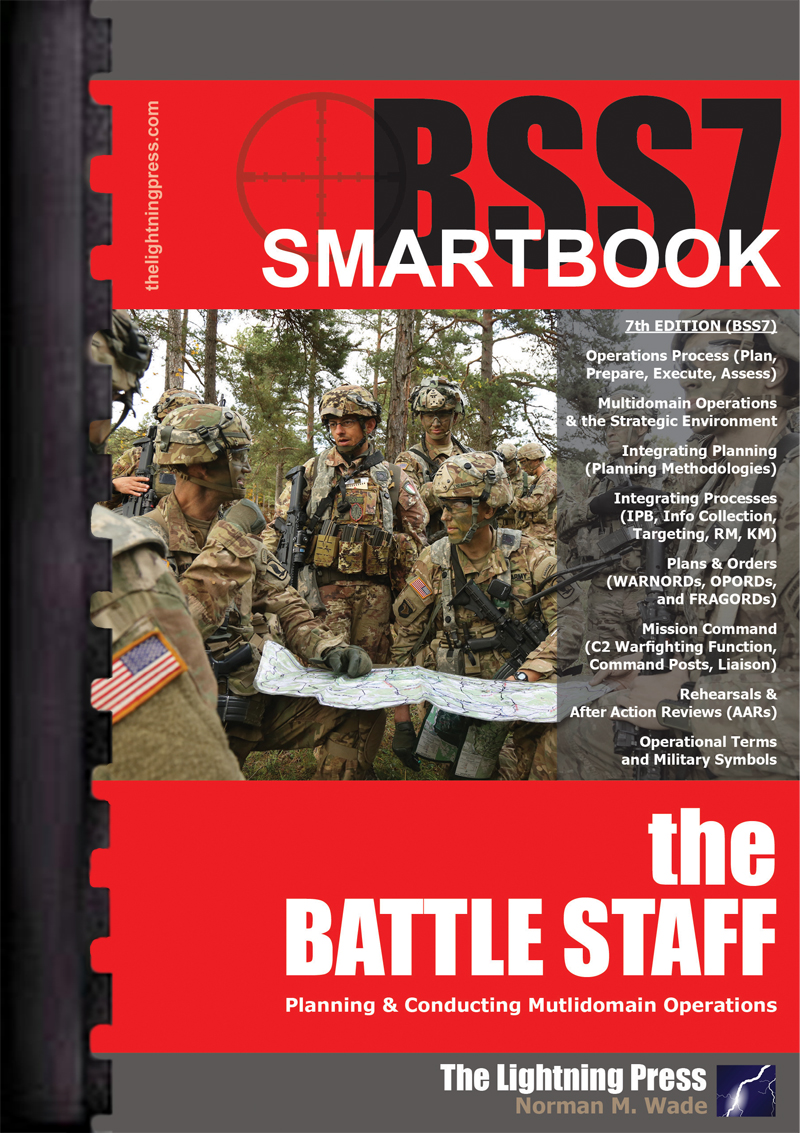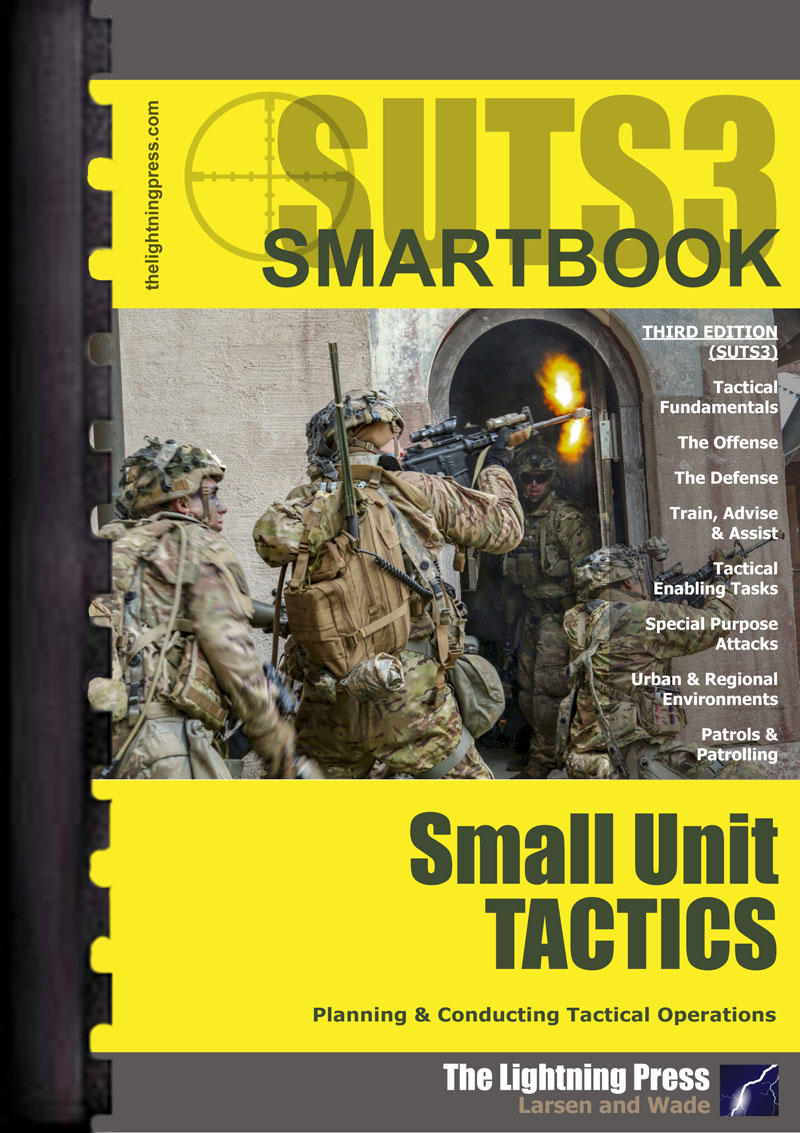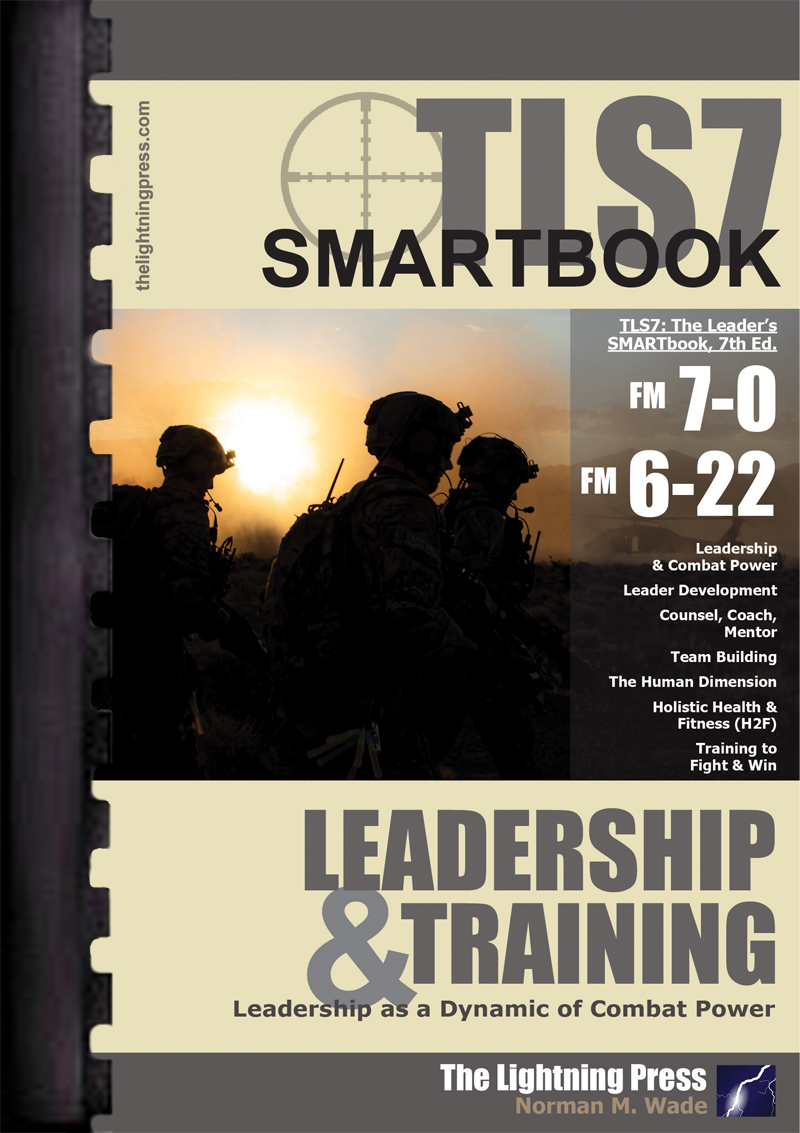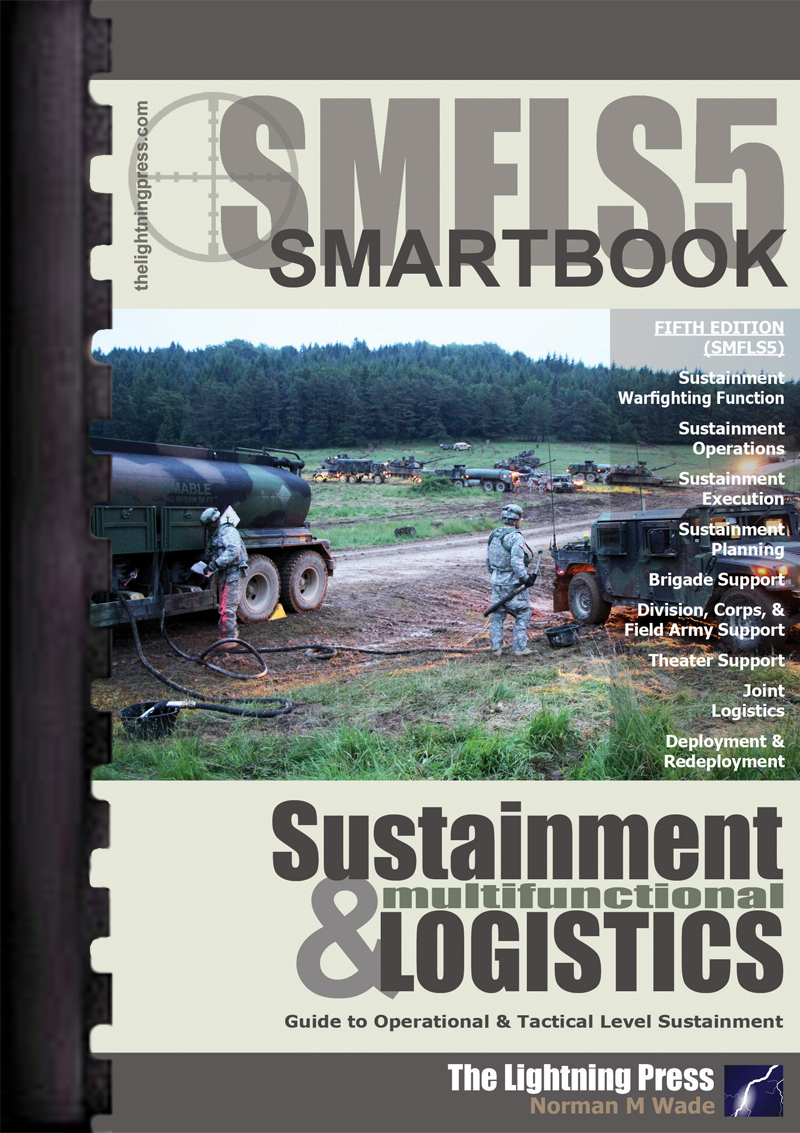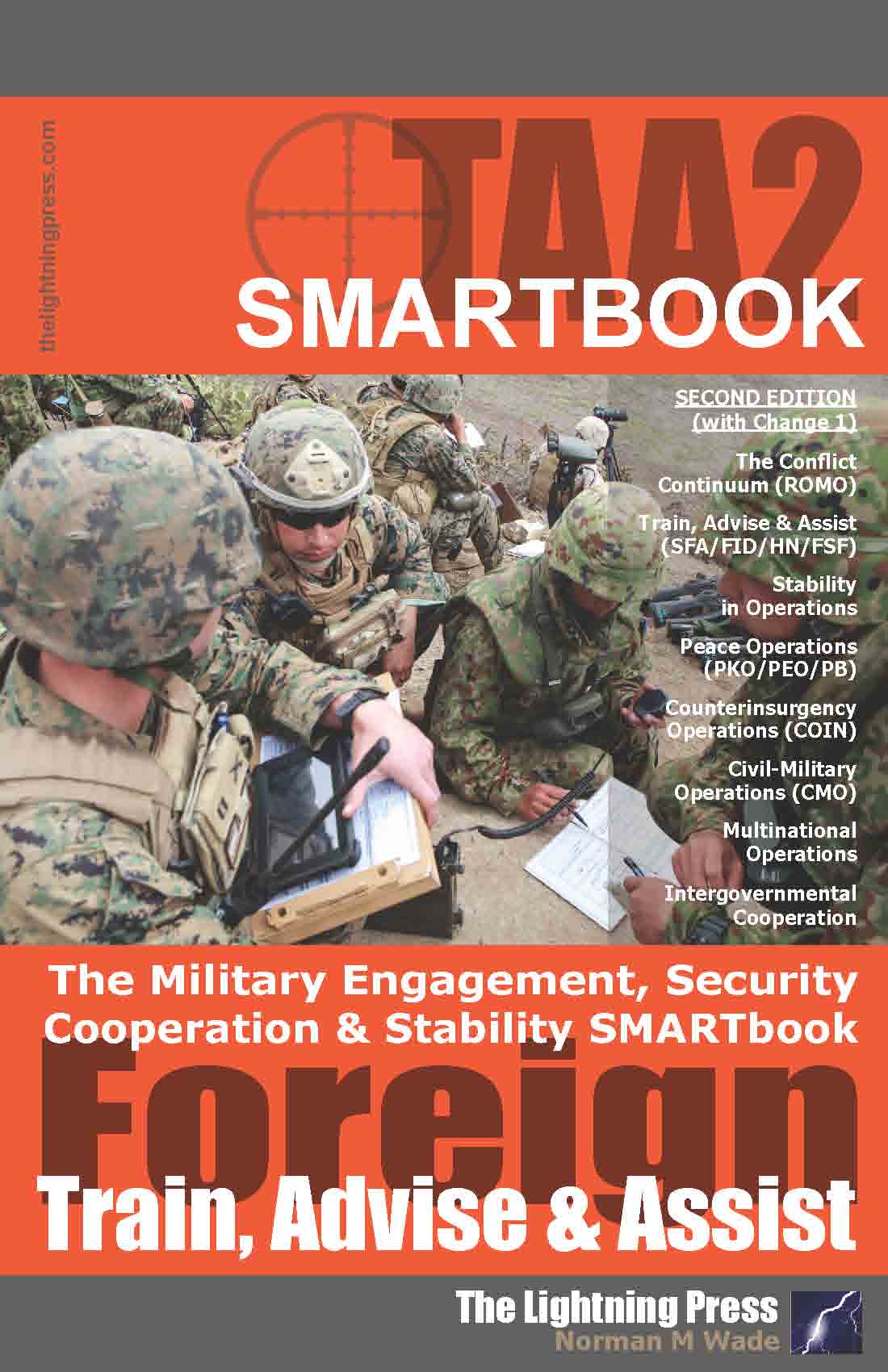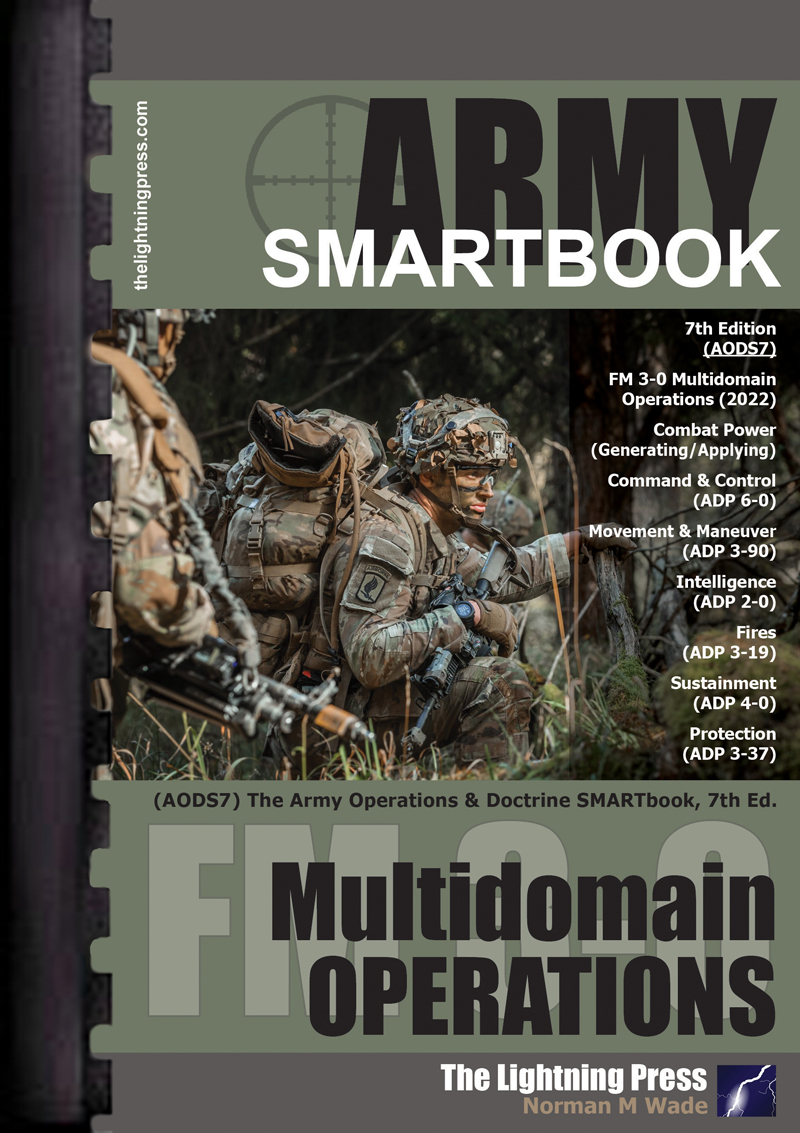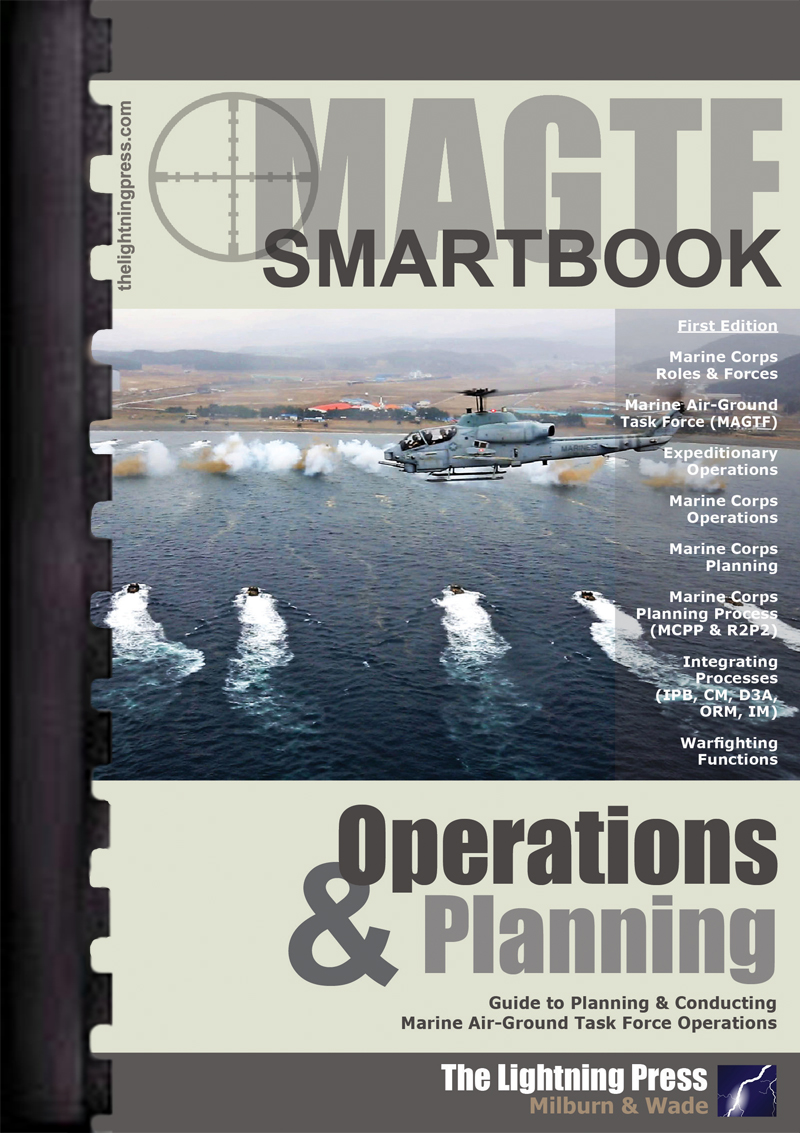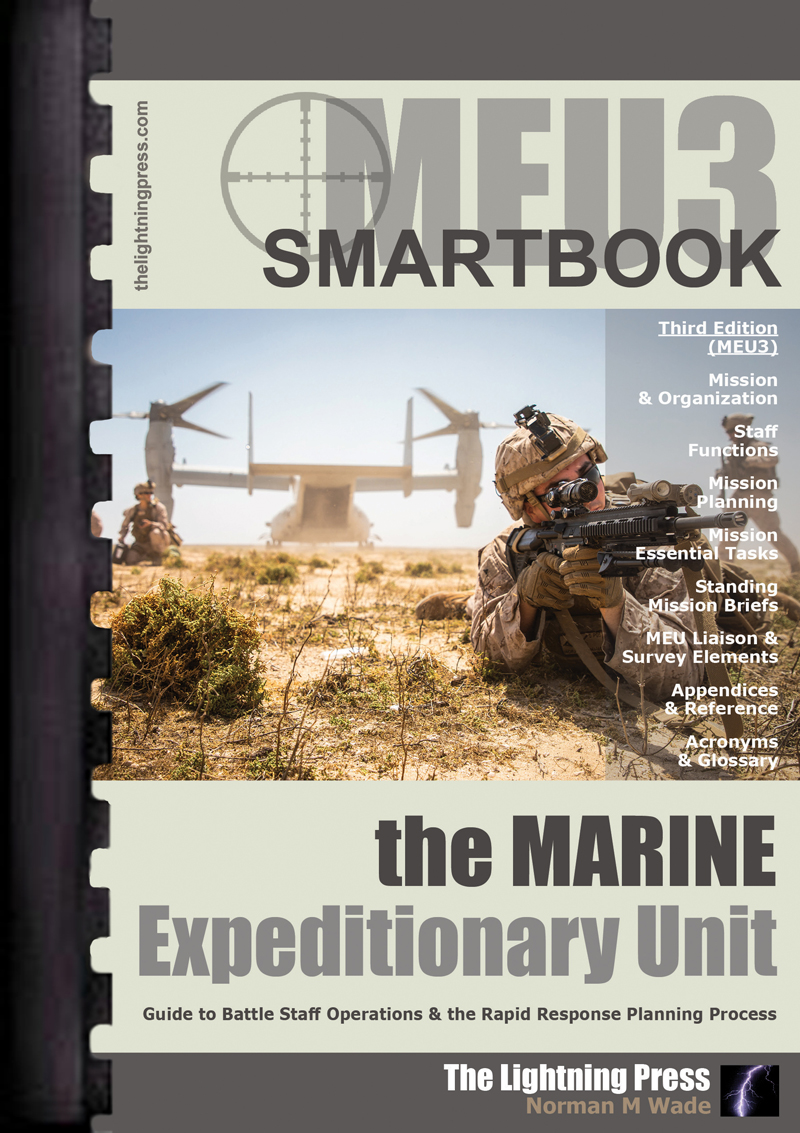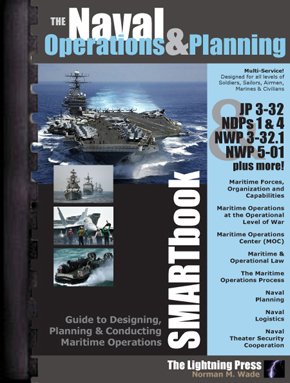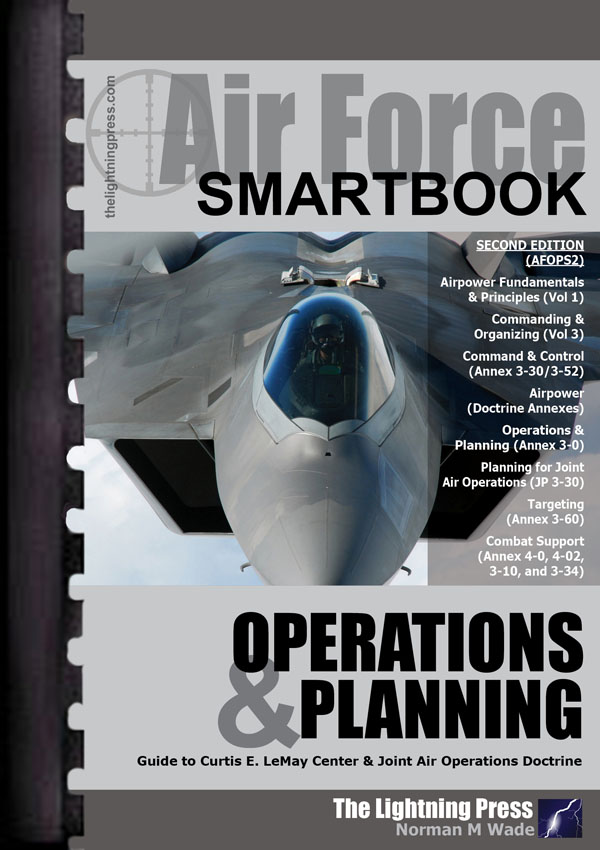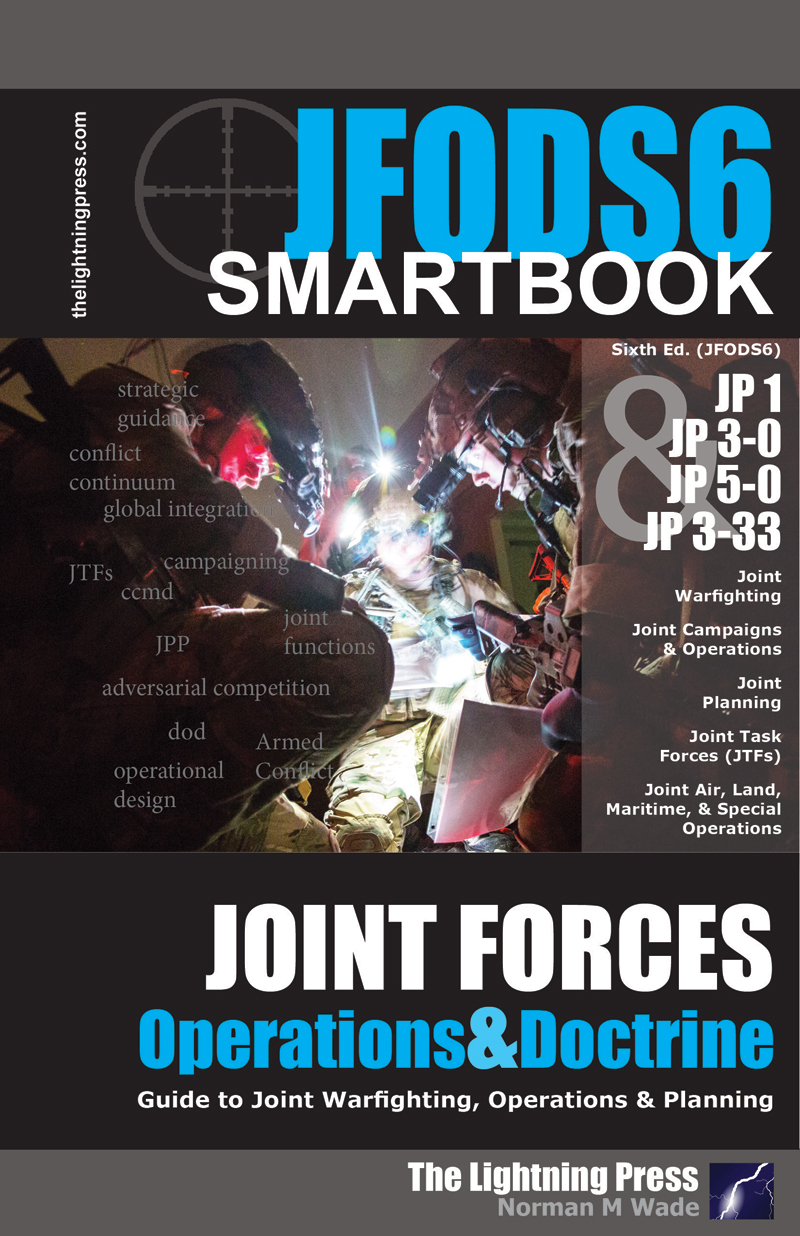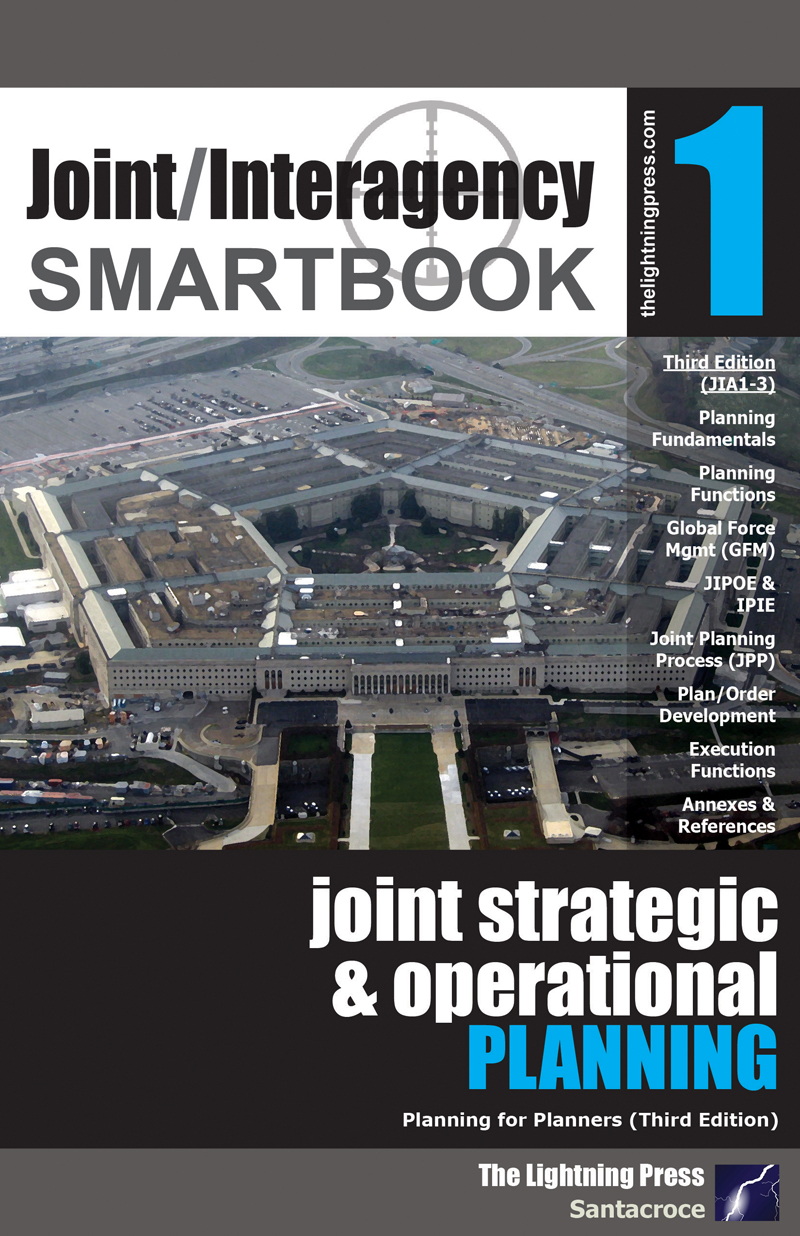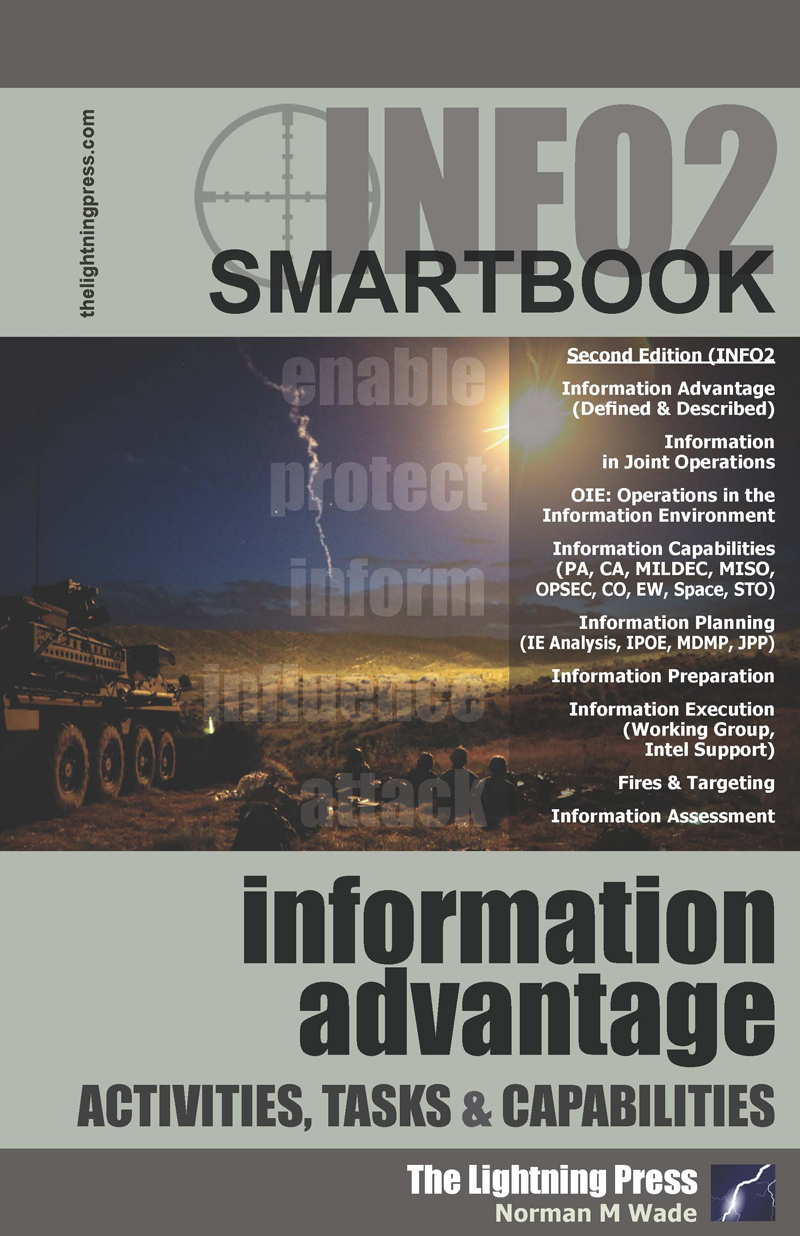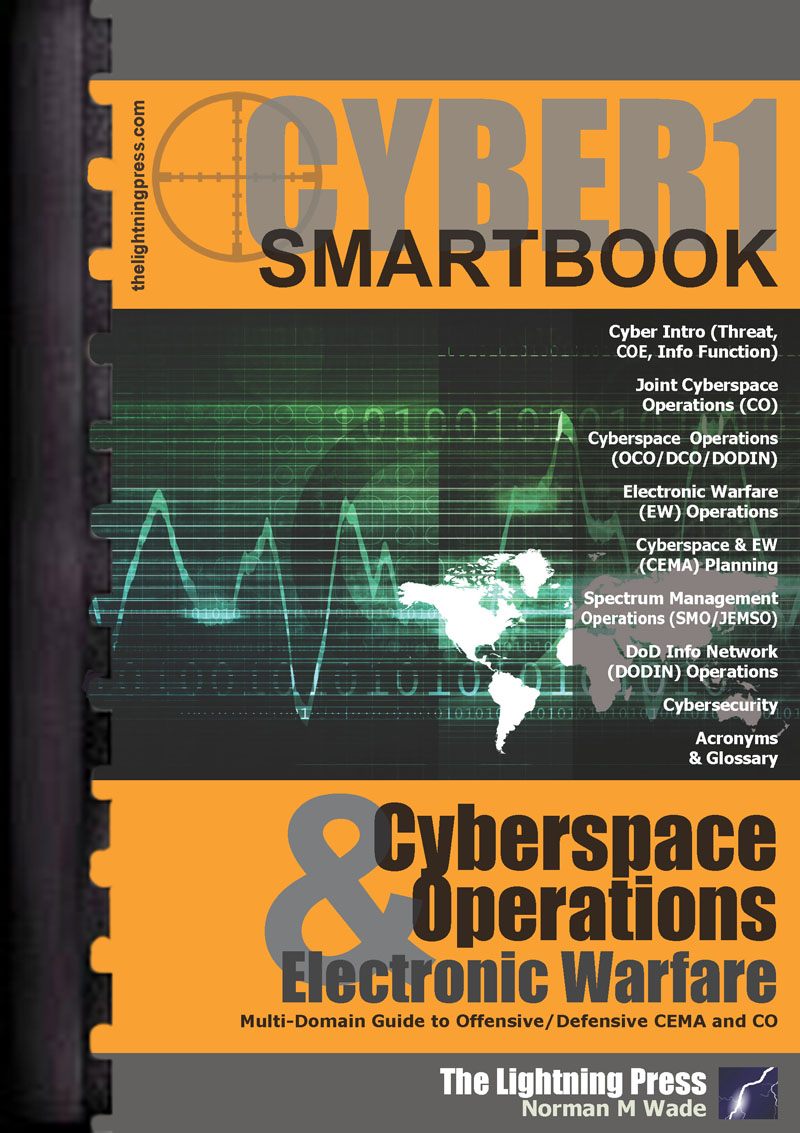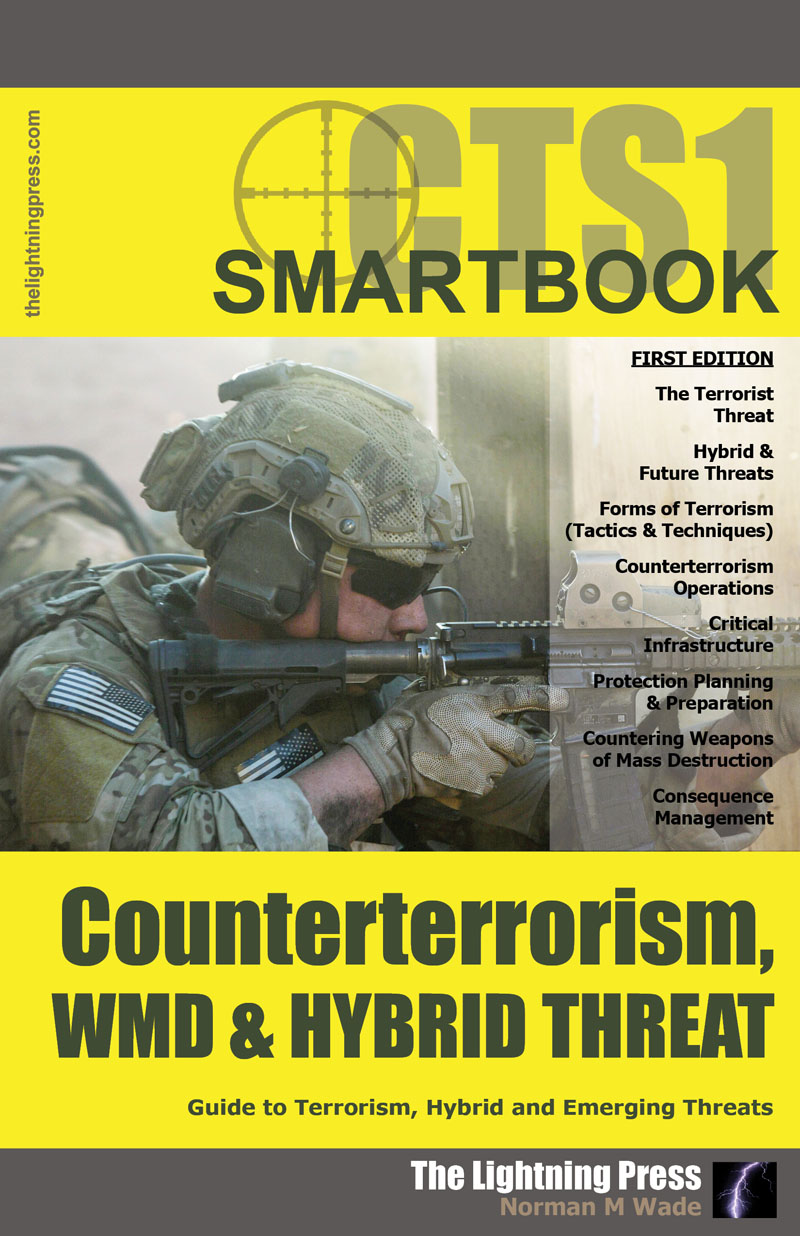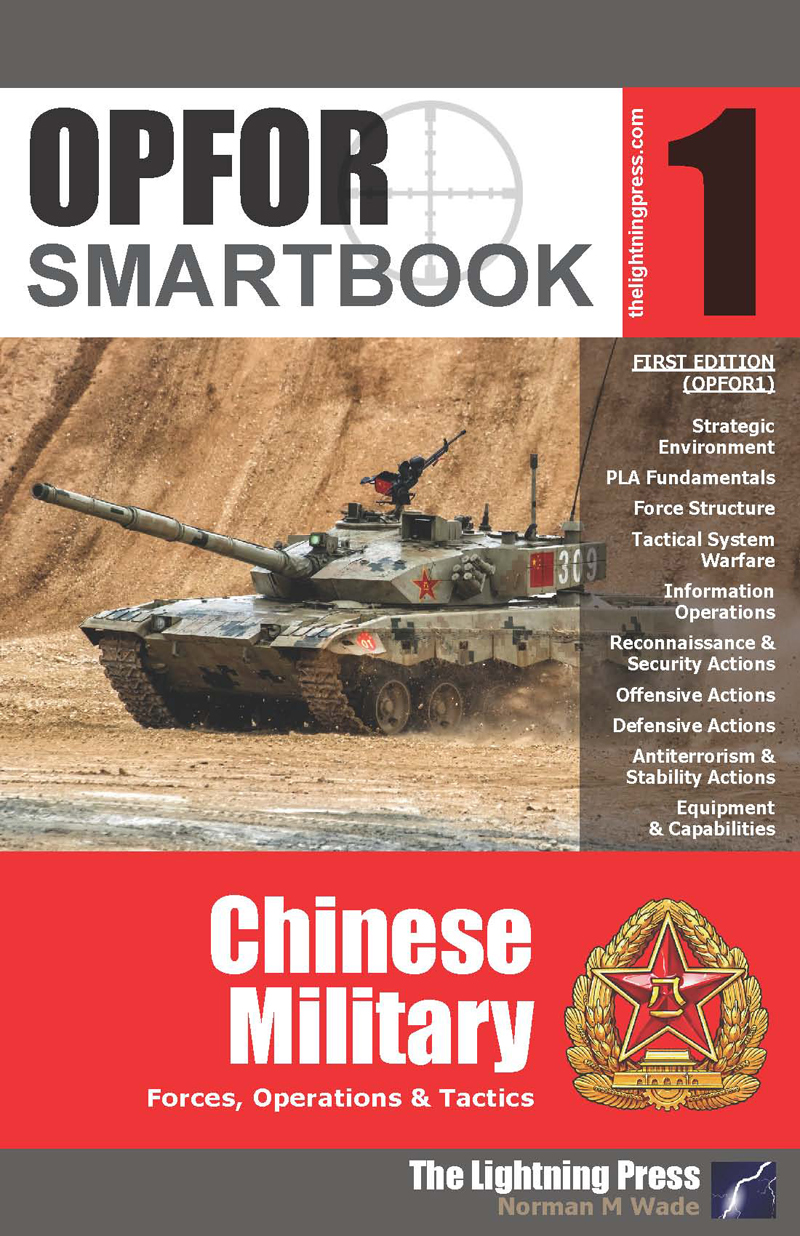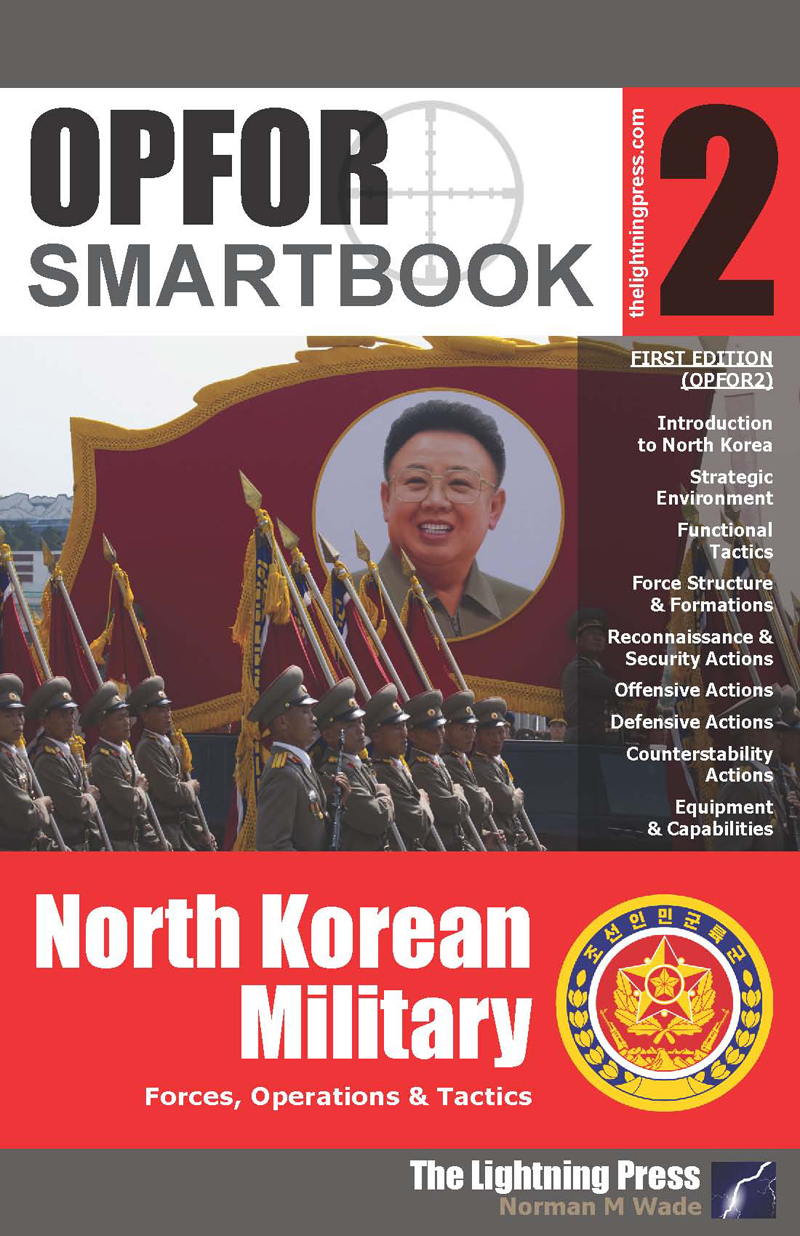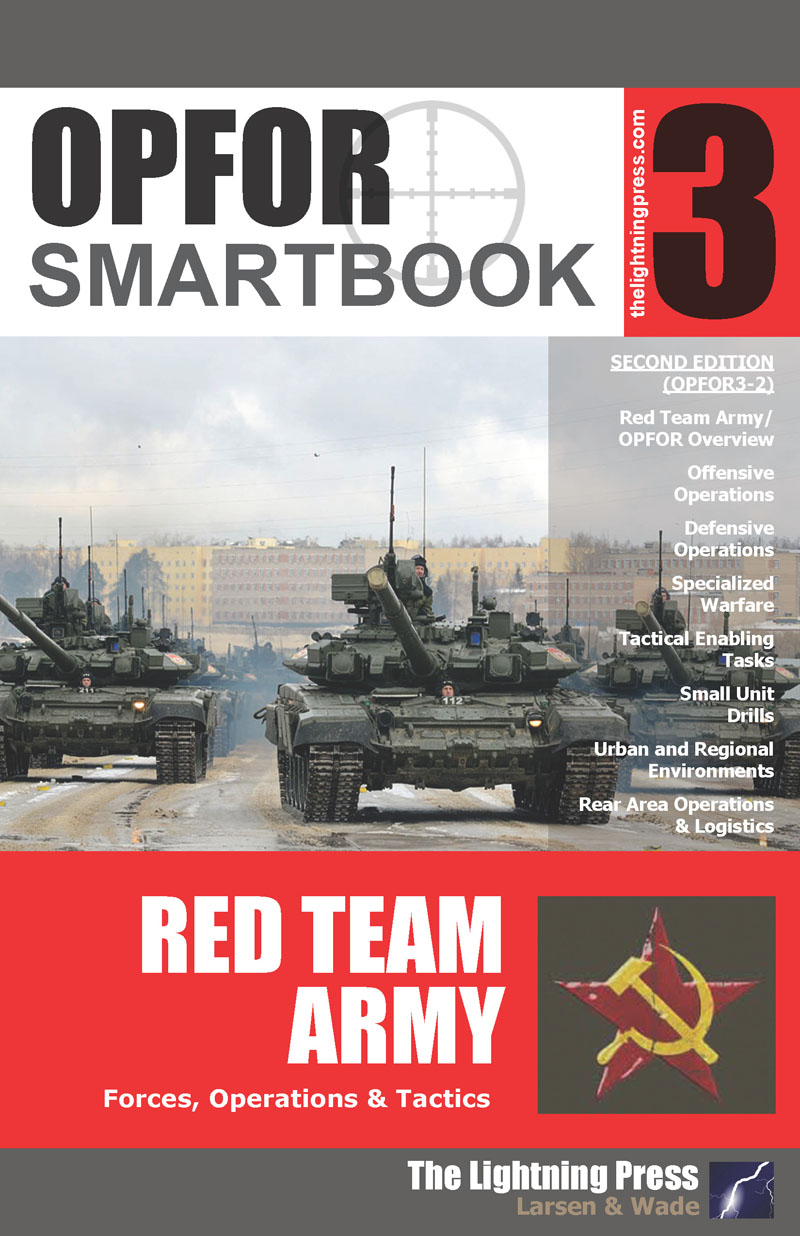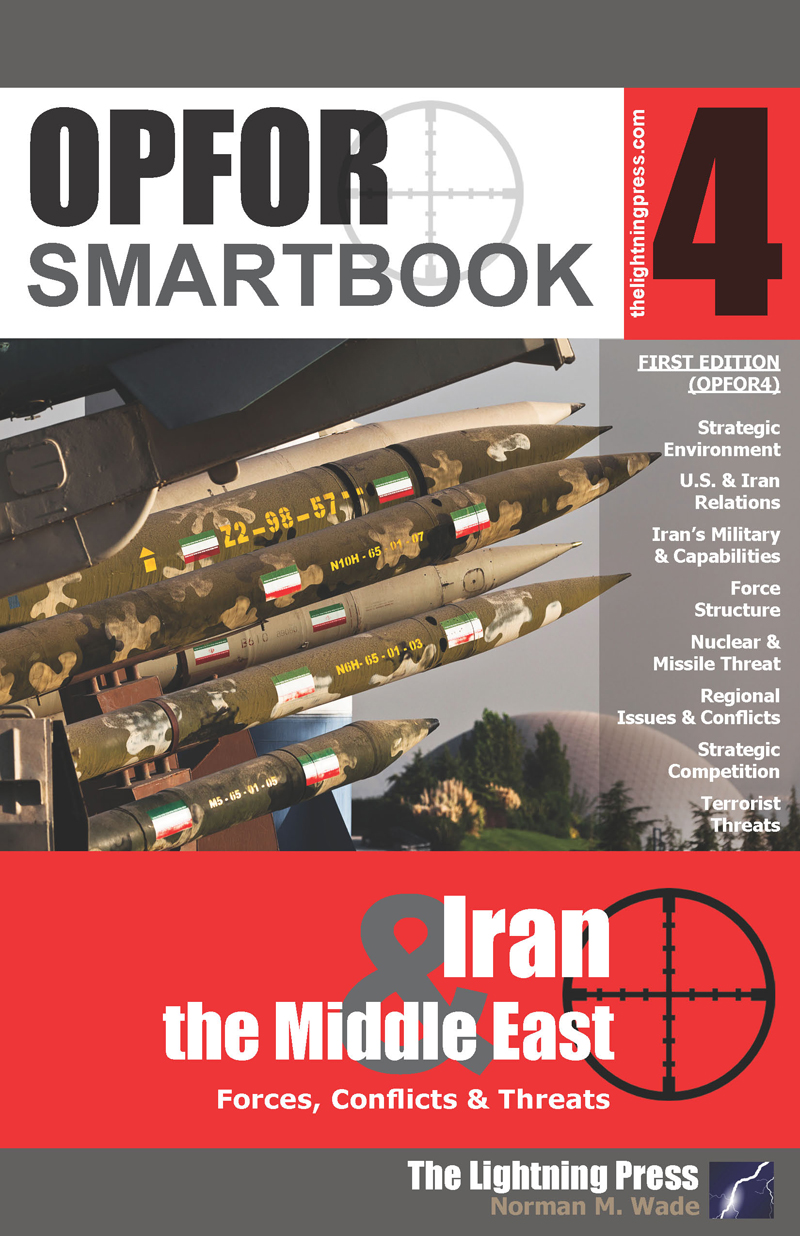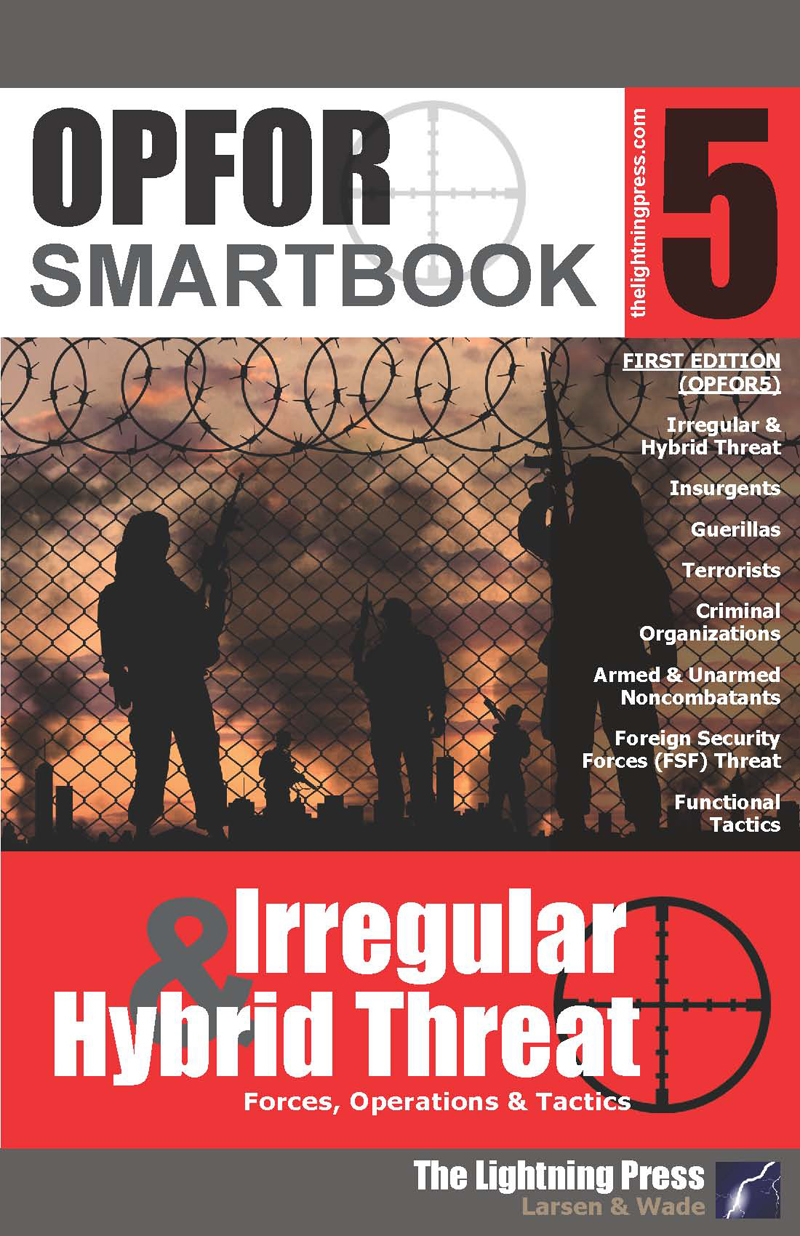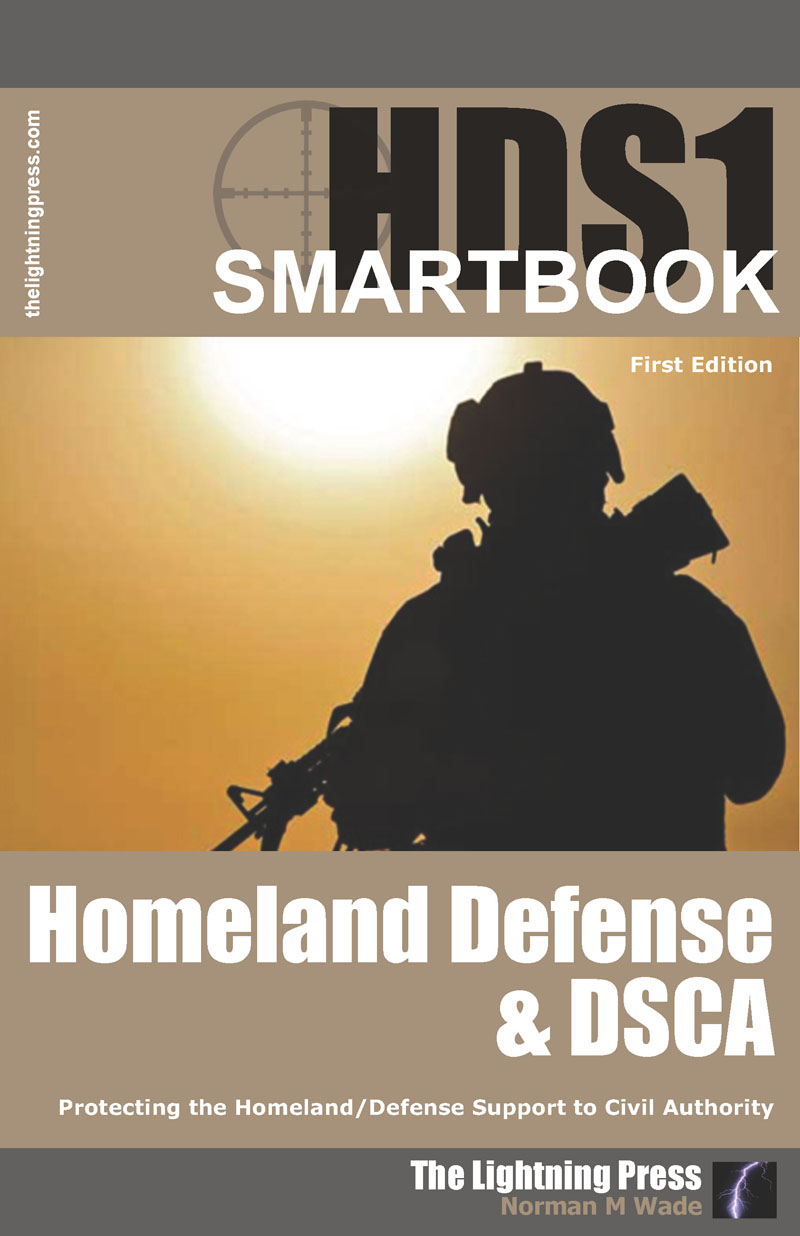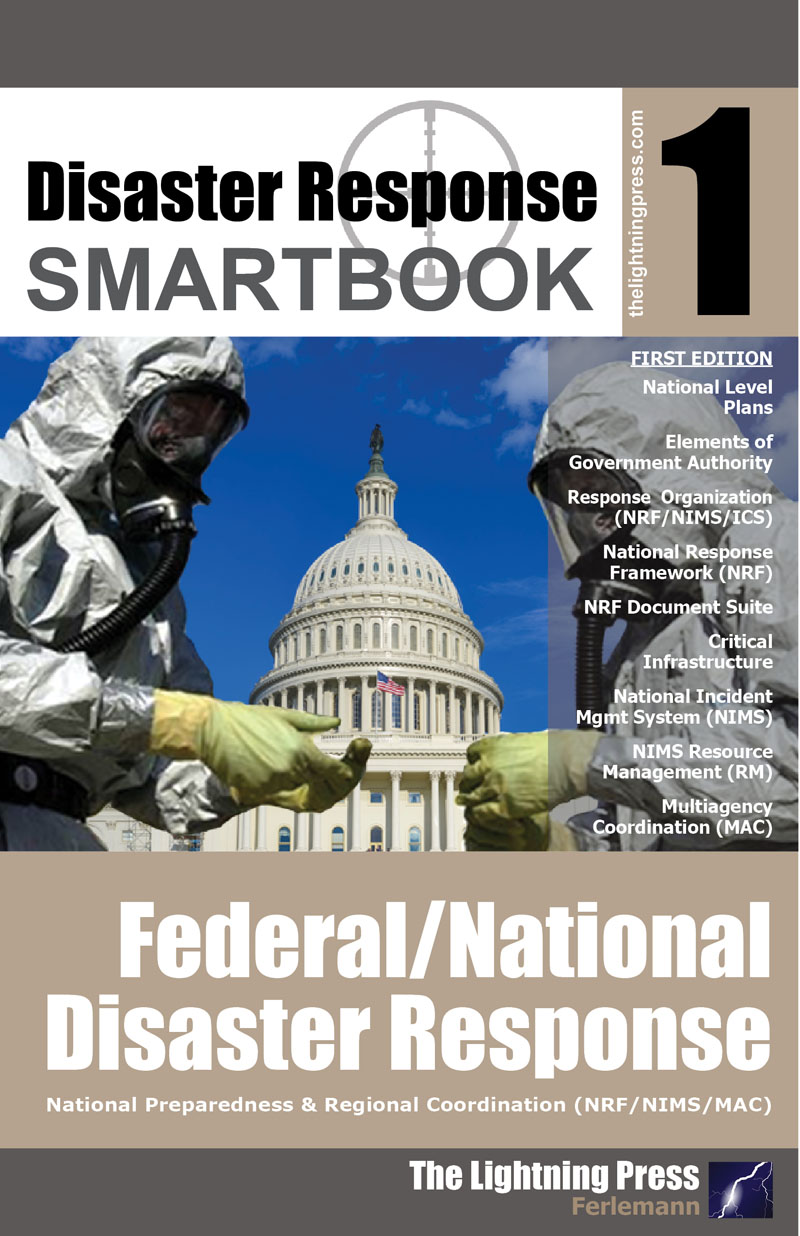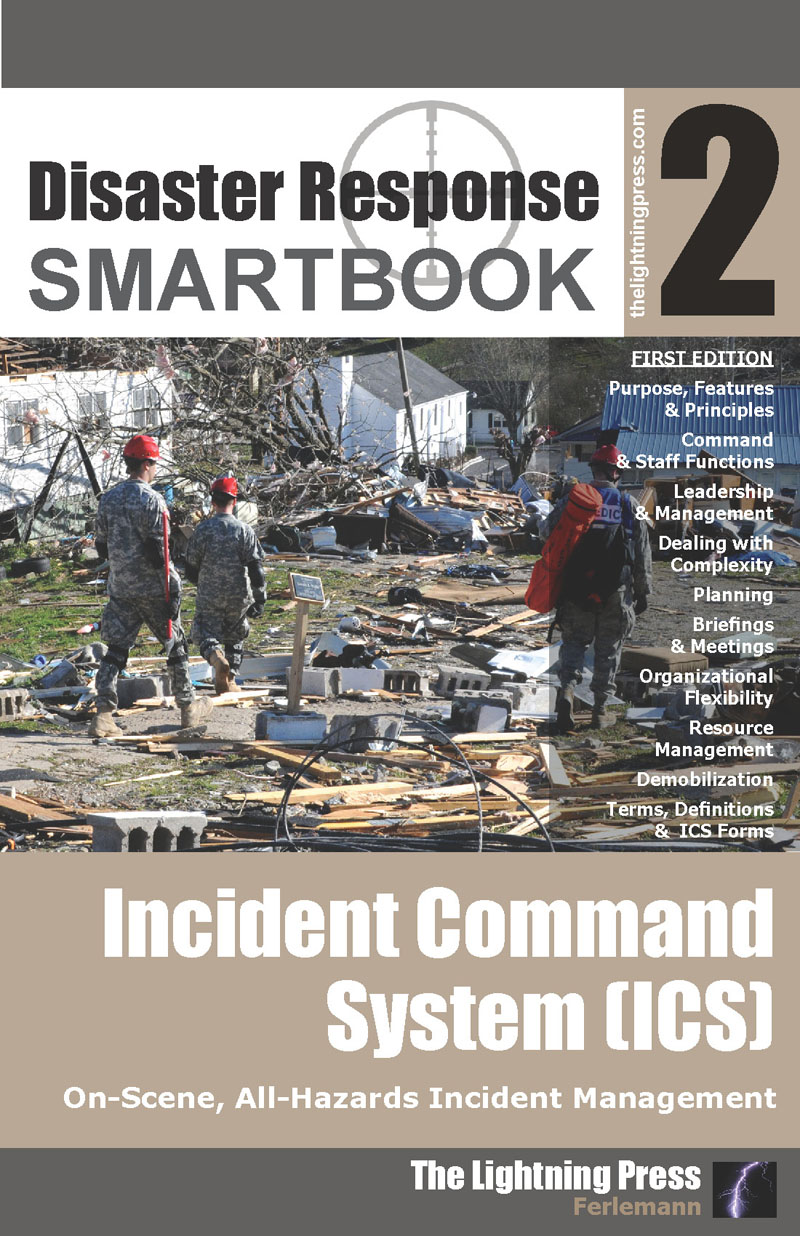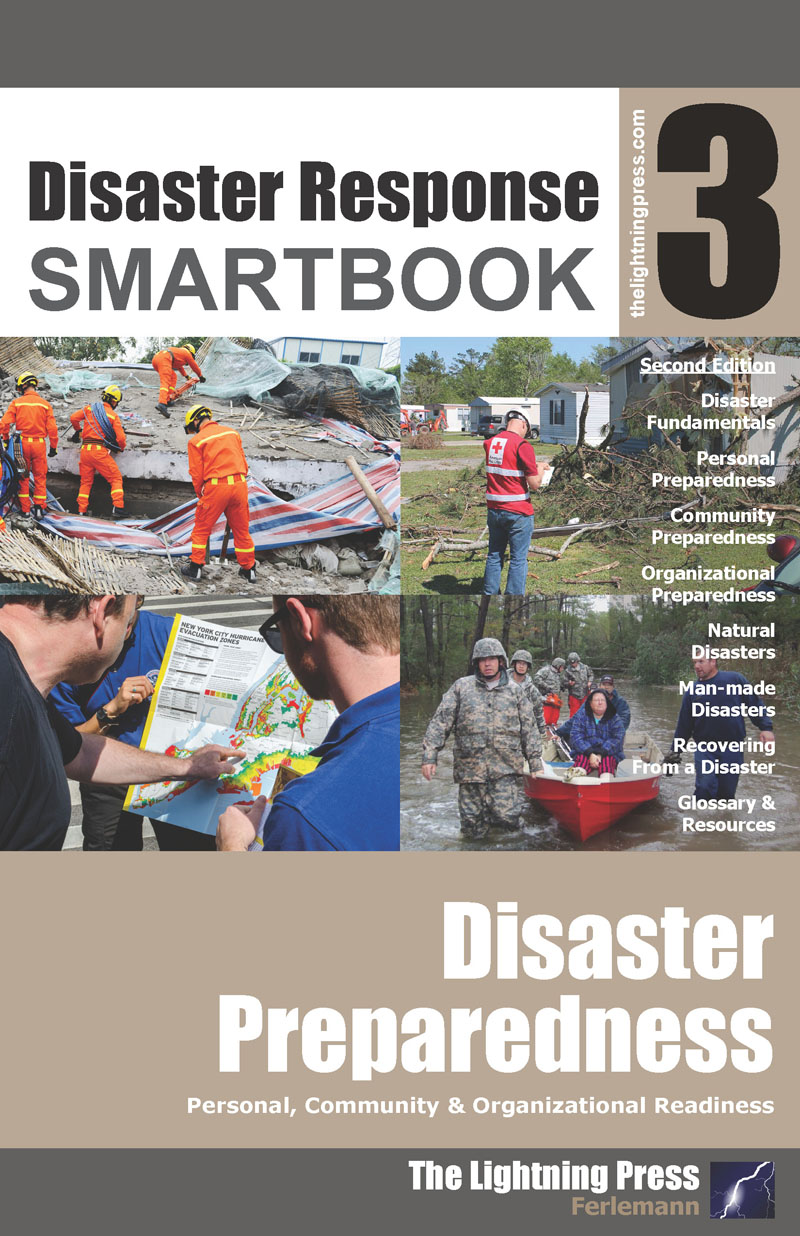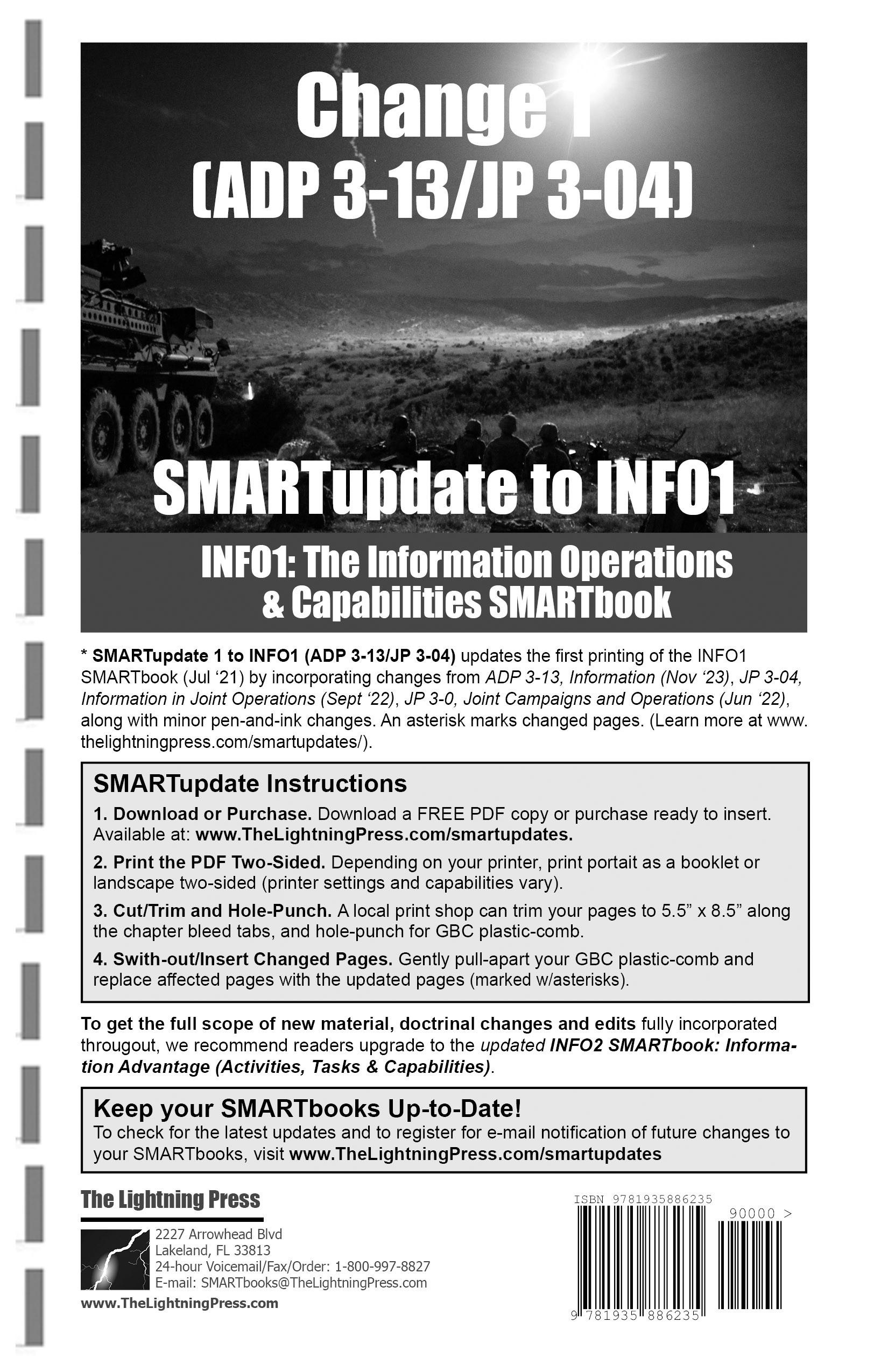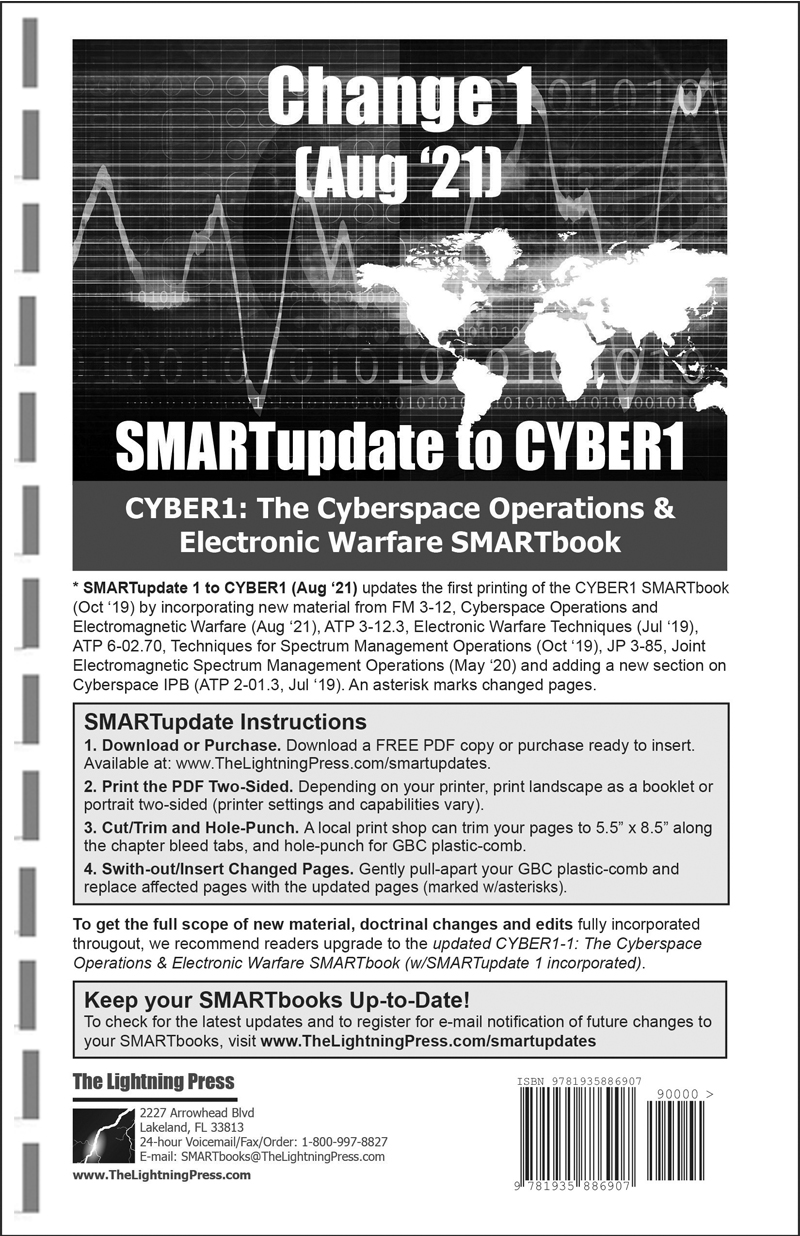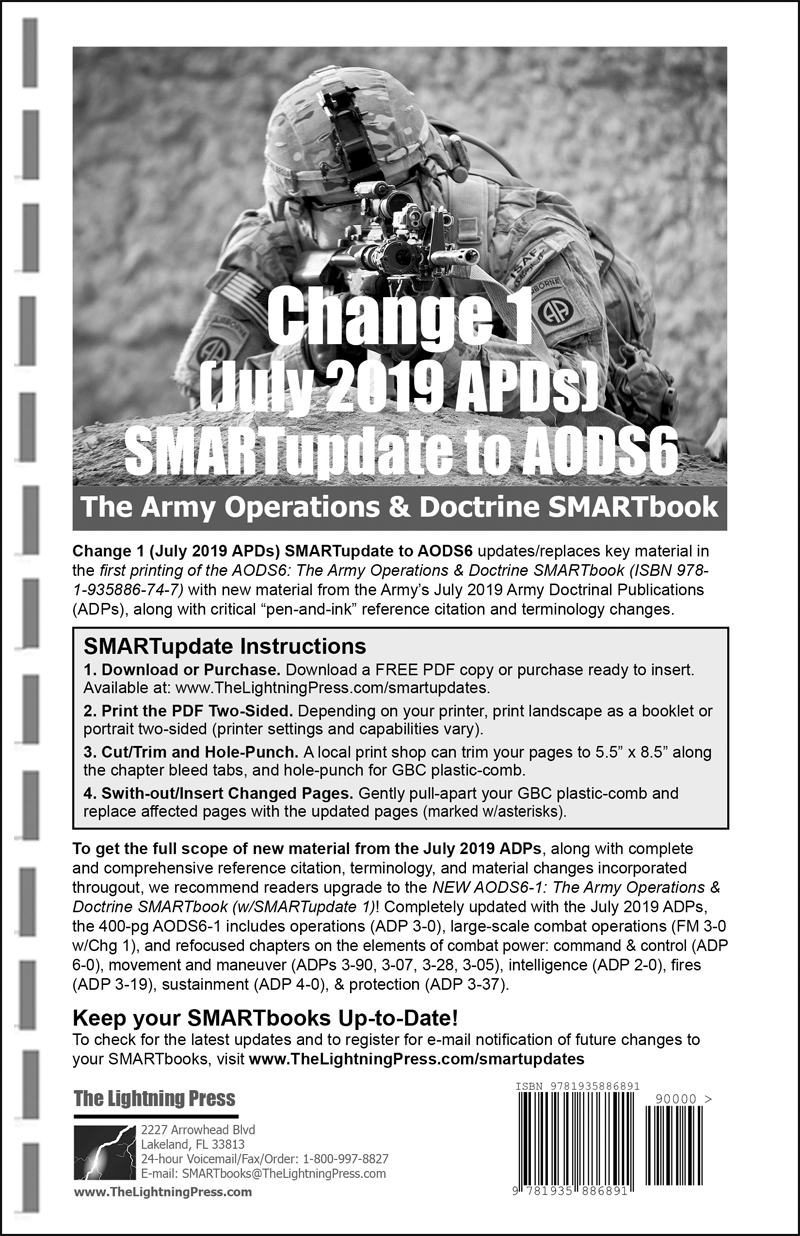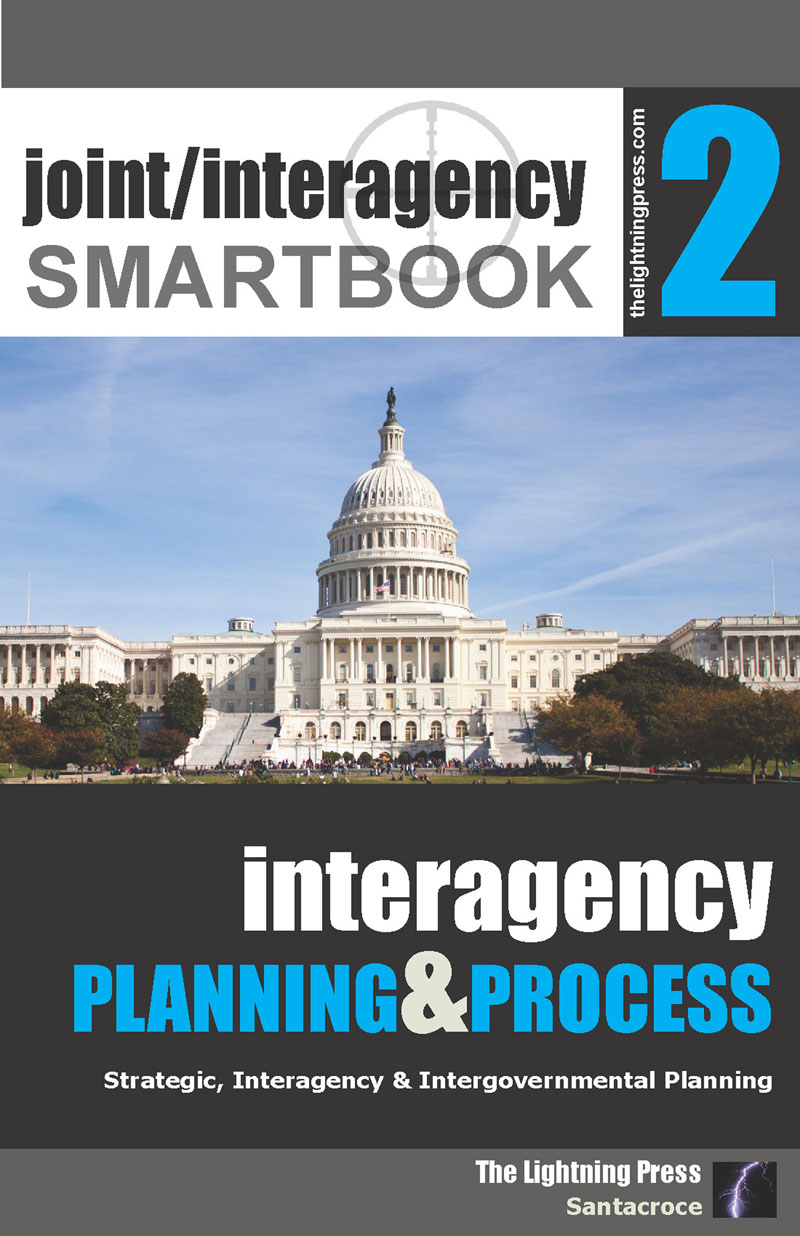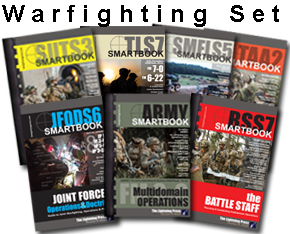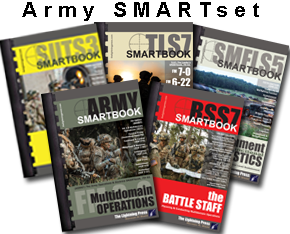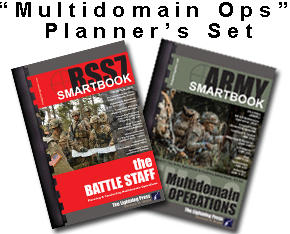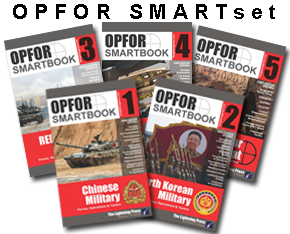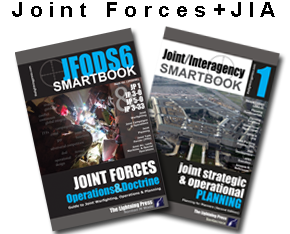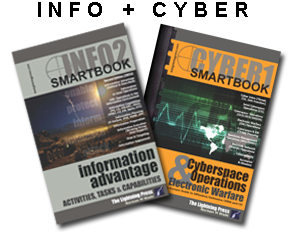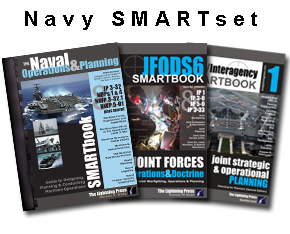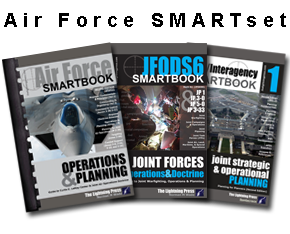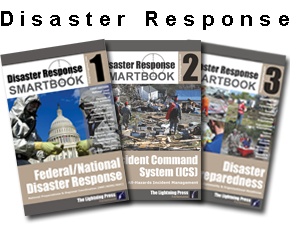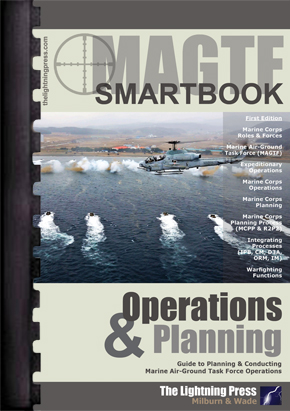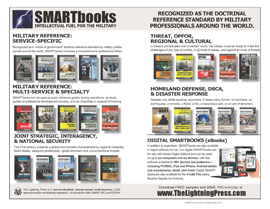The MAGTF Operations & Planning SMARTbook by Andrew Milburn and Norman M. Wade topics and chapters include Marine Corps roles & forces, the Marine Air-Ground Task Force (MAGTF), expeditionary operations, Marine Corps operations (ROMO, offense, defense, tactical operations, reconnaissance & security, tactical tasks, etc), planning considerations, the Marine Corps Planning Process (MCPP & R2P2), integrating processes (IPB, collection management, targeting, operational risk management, information management), and the six warfighting functions.
Primary references include MDCP 1-0, Marine Corps Operations (2018); MCWP 5-10, Marine Corps Planning Process (2018); ATP 2-01.3/MCRP 2-3A, Intelligence Preparation of the Battlespace (2014); MCTOG Tactical Marine Air-Ground Task Force Integration Course (TMIC) Handbook (2018); MCTOG Operations & Tactics Instructor (OTI) Guide (2011), MSTP Pamphlet 5-0.4, MAGTF Officer’s Guide (2010); and more.
Download a free PDF sample and learn more at: MAGTF: The MAGTF Operations & Planning SMARTbook (Guide to Planning & Conducting Marine Air-Ground Task Force Operations)
The Marine Corps organizes its operational forces as Marine Corps components and as Marine Air-Ground Task Forces (MAGTFs) in order to provide task organized, self-sustaining, multipurpose forces to the joint force or naval expeditionary force. These uniquely organized Marine Corps forces are capable of responding to a wide range of operational and tactical missions and tasks, providing an unmatched combination of deployment and employment options.
Expeditionary maneuver warfare is the Marine Corps capstone operational concept. It applies the doctrine of maneuver warfare to Marine Corps expeditionary operations to achieve desired effects across the spectrum of conflict. Expeditionary maneuver warfare focuses on the application of expeditionary military power at the right place, at the right time, and at the right level.
The Marine Corps approach to the range of military operations (ROMO) links MAGTF capabilities with the collective, coordinated use of both traditional and non- traditional elements of national power into a cohesive foreign policy tool, and focuses on the ability to be expeditionary through forward-deployed naval forces. The Marine Corps employs several planning processes. For units with staffs, the Marine Corps planning process (MCPP) is most appropriate. If time does not allow use of the full, six-step MCPP, the commander and the planners may use the rapid response planning process (R2P2).
Marine Corps warfighting functions encompass all military activities in the battlespace. Commanders and staffs integrate the warfighting functions and synchronize the force to adapt to changing circumstances throughout the operations process. They use several integrating processes to do this.
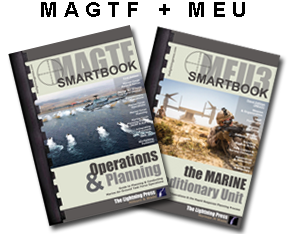 Readers may also wish to consider “MEU3: The Marine Expeditionary Unit SMARTbook, 3rd Ed.”, which is designed as a companion book (focused on MEU-level battle staff operations) to “MAGTF: The MAGTF Operations & Planning SMARTbook (Guide to Planning & Conducting Marine Air-Ground Task Force Operations)” by Andrew Milburn and Norman M. Wade (The Lightning Press). Learn more at: https://www.thelightningpress.com/bookstore/smartset/magtf-meu-smartset-2-books/
Readers may also wish to consider “MEU3: The Marine Expeditionary Unit SMARTbook, 3rd Ed.”, which is designed as a companion book (focused on MEU-level battle staff operations) to “MAGTF: The MAGTF Operations & Planning SMARTbook (Guide to Planning & Conducting Marine Air-Ground Task Force Operations)” by Andrew Milburn and Norman M. Wade (The Lightning Press). Learn more at: https://www.thelightningpress.com/bookstore/smartset/magtf-meu-smartset-2-books/
Browse additional military doctrine articles in our SMARTnews Blog & Resource Center.
About The Lightning Press SMARTbooks. Recognized as a “whole of government” doctrinal reference standard by military, national security and government professionals around the world, SMARTbooks comprise a comprehensive professional library. SMARTbooks can be used as quick reference guides during operations, as study guides at education and professional development courses, and as lesson plans and checklists in support of training. Browse our collection of Military Reference SMARTbooks to learn more.

